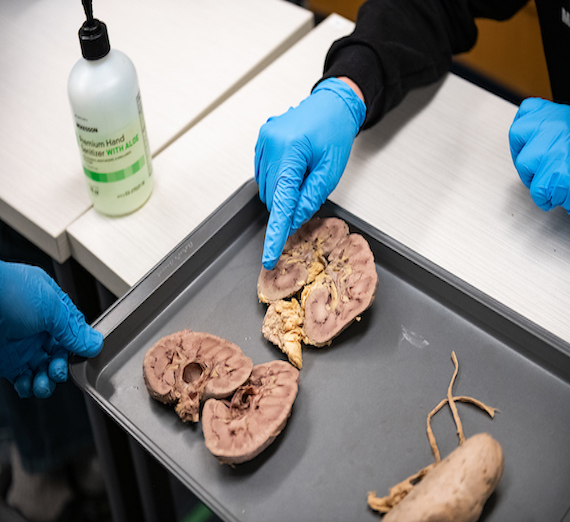HEALing Journey: A new College Minor Examines Health Disparities

In some ways, the university’s new health equity minor (HEAL) distinguishes itself by what it is not – it’s not just an aspirational track toward public health but an interdisciplinary one to understand barriers to healthy communities. Director and sociology professor Andrea Bertotti Metoyer sought to build a minor that complements the growing field. And while not public health per se, HEAL tackles adjacent problems with a keen eye on equity and disparity within healthcare.
The program is open to any student curious about the intersections of social injustices and health. According to Bertotti Metoyer, the benefit is that the minor isn’t restricted to pre-med or biology students but can fulfill the academic path of anyone from an international studies, engineering, or environmental sciences major. Any student passionate about the intersections of social injustice and health will find a home in the minor.
Students will be challenged to view health less as a technological, biological endeavor and think of it more as a collective social effort. “My perspective as a sociologist is that health is a social accomplishment.” Bertotti Metoyer clarifies further, “We tend to think of health as a primarily genetic or lifestyle accomplishment, but social forces are antecedent to all those factors. Prevention is my focus.” The minor is timely, topical, and on-point for conversations within medical ethics and activist circles. It also rises to the university’s mission of educating students to lives of leadership and service for the common good.
Health equity looks at how our systems and structures can negatively impact a person or group of people’s lives. Some examples include examining the factors that lead to early mortality among Black people. In many ways, it looks at a people’s material, historical, and cultural circumstances, including where someone lives to the environmental factors that influence how they get food and clean water. Health equity goes beyond telling someone to “stop smoking, get better exercise, etc.” With Gonzaga’s minor, students can better understand how, according to Bertotti Metoyer, “social inequalities get into our bodies on a cellular level…influencing our hormones and genes.”
The minor’s courses heavily emphasize the social sciences and include classes like Indigenous Science Lab, Sociology of Reproduction, Medical Spanish and Cultural Competency, and Health Care Ethics. Learn more about the program and its requirements at the Health Equity website.
